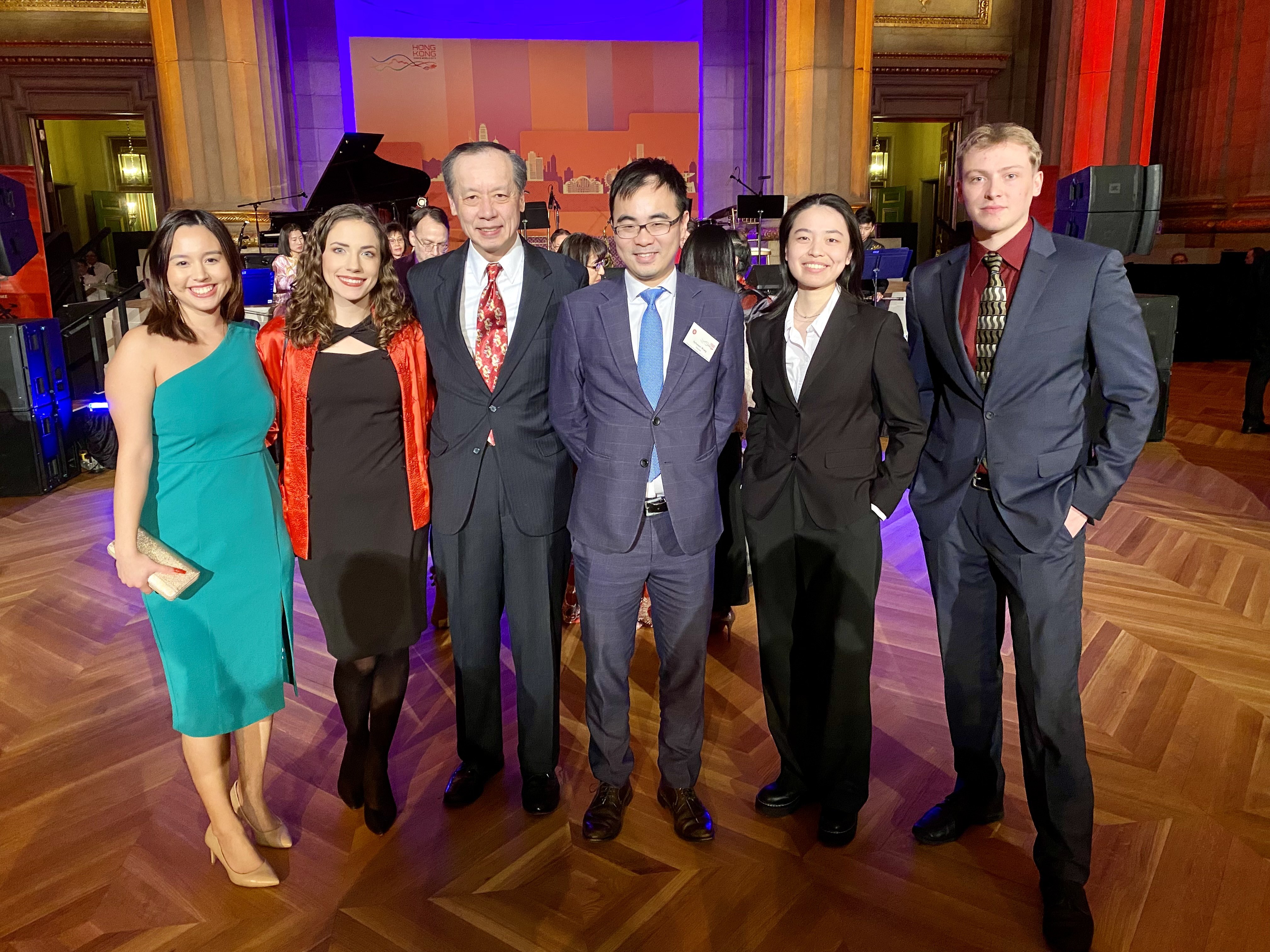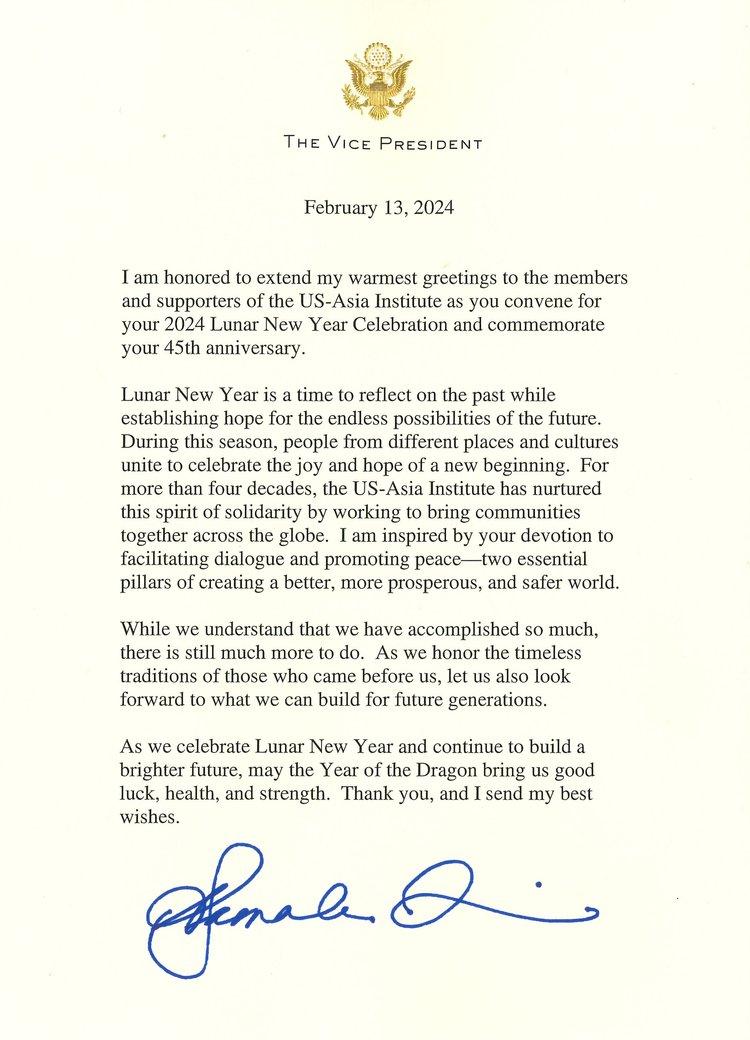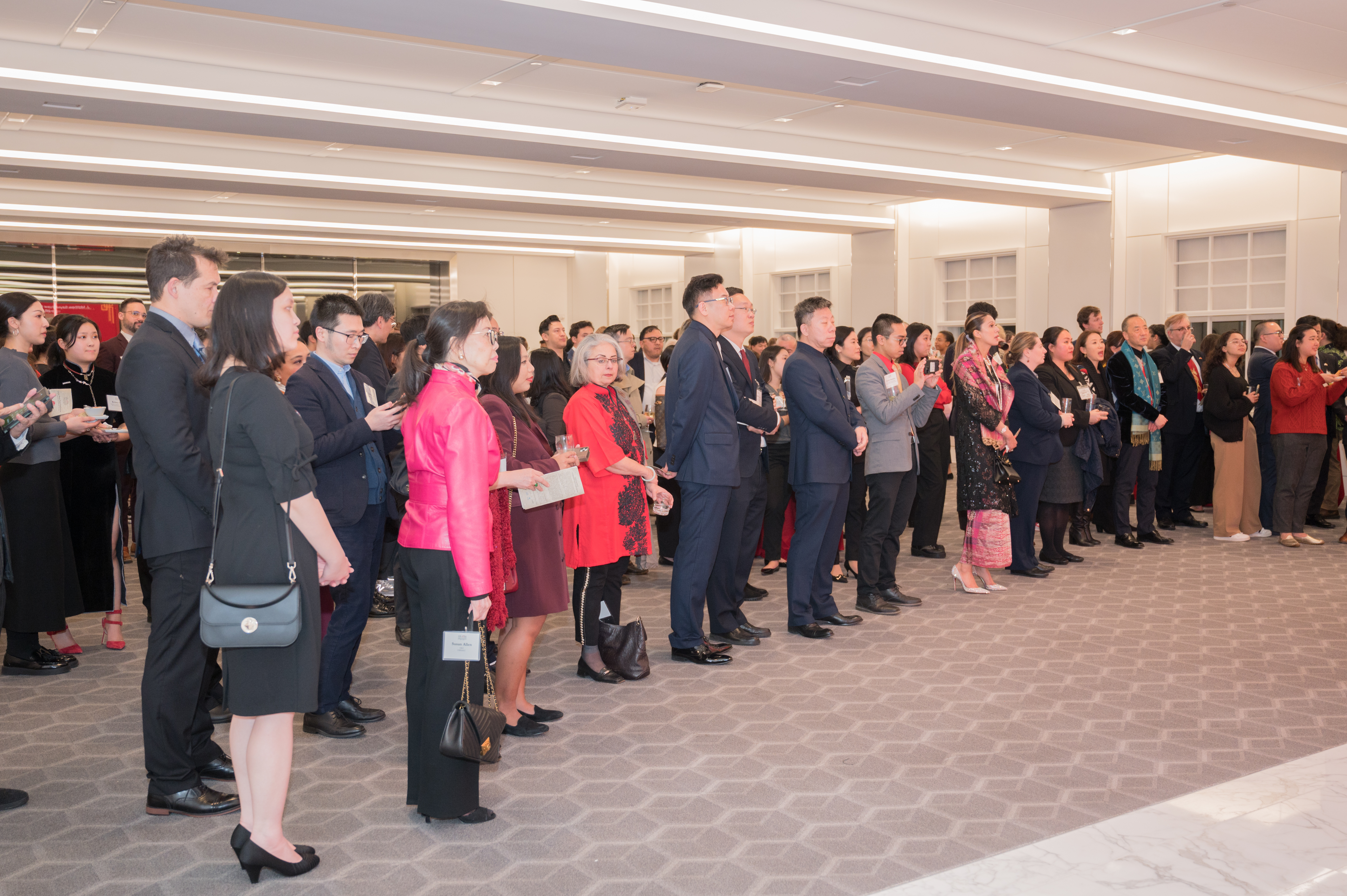The US-Asia Institute (USAI) was established in 1979 to counter misconceptions about Asia. Since then, USAI has worked on building channels of dialogue and facilitating conversations between the governments and peoples of the United States and Asia to promote better understanding and enhanced collaboration.
For 45 years, the US-Asia Institute (USAI) has played an important role in strengthening US-Asia relations. The Institute's programs spotlight education, exchange, and leadership, with the goal of equipping students, policymakers, advisors, and interested parties with the necessary tools to effectively engage in US-Asia relations.
Against the backdrop of a storied history of advancing a better understanding of US-Asia relations, USAI commemorated its 45th anniversary launch on February 13, 2024, alongside a Lunar New Year celebration. This special occasion featured Lunar New Year staples and offerings of various Asian cuisines. USAI trustees, colleagues, and friends gathered to celebrate the significance of cultural exchange in US-Asia relations.

USAI Chairman Glenn Lau-Kee delivered the welcome and opening remarks. Daniel Kritenbrink, Assistant Secretary of State for East Asian and Pacific Affairs, and Erika Moritsugu, Deputy Assistant to the President, were in attendance representing the Biden Administration. Congressman Rick Larsen of Washington, Congresswoman Carol Miller of West Virginia, and Congressman Andy Kim of New Jersey, who spoke briefly, represented Capitol Hill. The celebration was also attended by Ambassador Mohamed Nazri Bin Abdul Aziz of Malaysia and Ambassador Lui Tuck Yew of Singapore.
Vice President Kamala Harris sent a special letter to USAI, thanking the institute for hosting a Lunar New Year celebration and commending its 45-year contribution to US-Asia relations.

History of USAI
Mrs. Esther Kee, who was part of the Carter Administration, and helped set up the Asian Pacific American section of the Democratic National Committee (DNC), first visited Washington, DC in 1977 to heighten awareness of the important role of Asian Americans in promoting collaboration and interconnectedness between the US and Asia. Inspired by her vision of bridging the east and west and believing Asian Americans have something valuable to contribute to the conversation, Mrs. Kee carried on a journey to build awareness and mutual understanding between the US and Asia, crossing borders and breaking barriers to help ensure cross-cultural understanding of US-Asia relations is cultivated and sustained.
In 1978, amid misconceptions and negative stereotypes by Americans about Asia, the White House hosted a national gathering of Asian American leaders. Following the gathering, then-President Jimmy Carter urged Mrs. Kee and her colleague in the DNC, the late Mr. Joji Konoshima, to work with Richard C. Holbrooke, then Assistant Secretary of State for East Asian and Pacific Affairs, to foster understanding and cooperation.
The collaboration of these individuals led to the creation of the National Advisory Council for East Asian and Pacific Affairs, tasked with providing insights to the State Department on matters pertaining to Asia. Through these efforts, USAI was formally established in 1979 as an independent voice advancing US-Asia relations and addressing many false perceptions and prejudices about the region.
Throughout the years, USAI has been part of important milestones in US-Asia relations, with Mrs. Kee and Mr. Konoshima playing instrumental roles. During the historic visit of Chinese Vice Premier Deng Xiaoping to the US, Mrs. Kee and Mr. Konoshima traveled with him to different cities in the United States. In 1980, President Jimmy Carter led the first USAI Institute gala and addressed members of the Asian American community.
Contributions of the USAI to US-Asia Relations
USAI’s key priority is to organize Congressional staff delegations and exchange programs to actively immerse participants in issues affecting US-Asia relations. This initiative provides congressional staff from both the US and Asia with opportunities for high-level meetings with government officials, academic scholars, and business leaders on diverse topics such as trade, economic development, poverty alleviation, advancements in technology, environmental protection, and regional and global security.
To date, USAI has organized over 150 delegations to Asia, which has successfully created links between legislators in the US and their counterparts in Asia. Of these, 119 were exchanges with China. Congressional staff exchanges to China began in 1985, with four of these trips organized by USAI and sponsored by the Chinese People's Institute of Foreign Affairs (CPIFA). USAI has also organized eight congressional delegations to Singapore in close collaboration with the Singapore International Foundation, 15 congressional delegations to Japan in coordination with the Japan Ministry of Foreign Affairs, and several other delegations and exchanges to South Korea, Indonesia, and Malaysia, among others. One notable exchange was the 100th USAI Congressional Delegation in 2015, which CPIFA co-hosted.
Other USAI programming includes receptions, off-the-record briefings, youth initiatives, webinars, and podcasts. To carry these out, global subject matter experts are tapped; and thought leaders and policymakers are brought together to facilitate interaction, engage in candid conversations, build networks of trust and mutual respect, and foster a greater understanding of US-Asia relations.

Correspondence with Chairman Lau-Kee of USAI
Mrs. Kee’s quiet diplomacy moves forward through her son, current USAI Chairman Glenn Lau-Kee, a symbolic assurance that her passion to push cooperation and collaboration between the US and Asia will continue.
Chairman Lau-Kee shared the goals of USAI with the East-West Center:
“The goals I believe the USAI will achieve going forward are based on the initiatives and programs that we are undertaking now, with the recognition that there will always be new opportunities and ways of addressing pressing issues. These goals include three things. First, regularize and, where appropriate, institutionalize, people-to-people exchanges on both the national and sub-national levels on issues of common concern. Second, engage new generations of leaders to serve as bridges between the countries of Asia and the US. Lastly, build upon the efficient and effective use of both human and monetary resources.”
When asked about continuing the mission of his parents, Chairman Lau-Kee said this:
“Given the rapid and profound changes that have taken place in the countries of Asia, the US, and the rest of the world in the past 45 years, it would be presumptuous of me to think that I could project very far into the future. Nevertheless, USAI has held firm to its mission – to build understanding between the people and governments of the countries of Asia and the US – through its 45-year history, and I certainly expect that USAI will continue to fulfill its mission in an ever-changing environment,”
Chairman Lau-Kee also expressed positivism on the adaptability of USAI in dealing with the fast, ever-changing landscape, “Hopefully, the methods and opportunities that the USAI will have to address its mission will continue to evolve, but at its core, the USAI has always placed great importance the people-to-people exchanges as one of the most effective means of exchanging views and information and fostering relationships. The pandemic caused these changes to be suspended, but USAI will work towards resuming the delegations of members and staff of the U.S. Congress to the Asian region and welcome inbound delegations as well.”
The authors would like to congratulate USAI and its founding families - the Lau-Kees, Konoshimas, the Sugaharas, and the Toms for their contribution to US-Asia relations. The authors would also like to thank Chairman Glenn Lau-Kee and President Mary Sue Bissell for corresponding with them via email and for being valuable resources, including photographs, for this article.
John Angelo Gerard "Jag” D.O. Calbario is a participant in the Young Professionals Program at the East-West Center in Washington, DC. He is a graduate student at the American University School of International Service, enrolled in the Master of Arts in International Affairs program with a concentration in global governance. He was a former intern at the US-Asia Institute.